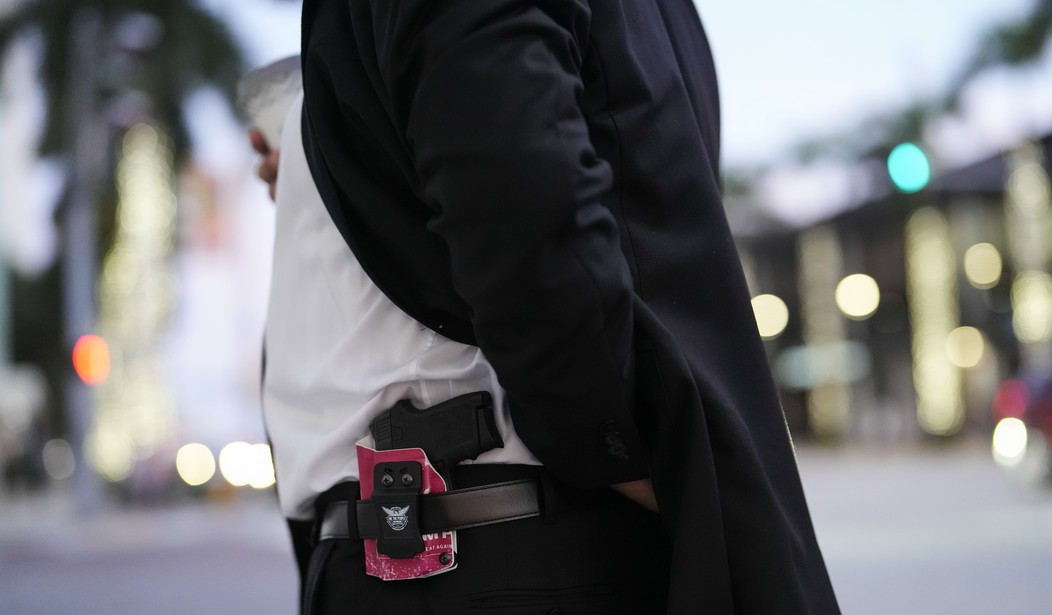Even before the Bruen decision was handed down, many anti-gun states could see where the Supreme Court was heading. They were going to lose and lose big. As a result, they started preparing to create new laws that would seem to fall within the framework the Court provided, at least if you squinted at them.
One of the states that tried this was, unsurprisingly, New Jersey.
For a long time, they were one of those states that required a "good cause" in order to get a permit at all and "self-defense" wasn't considered a good enough reason. People couldn't exercise their right to keep and bear arms, but then Bruen put an end to may-issue gun permitting schemes.
So New Jersey, like several other states, opted to make it virtually impossible to exercise gun rights through a different mechanism. They just made it impossible to carry a gun and go pretty much anywhere. You could carry a gun, or you could live your life. You couldn't really do both.
October 25, 2024 marked the one year anniversary of oral arguments before a three-judge panel at the Third Circuit Court of Appeals in the combined cases of Siegel v. Platkin and Koons v. Platkin. The cases challenged N.J. Public Law Chapter 131, the so-called “Bruen-response” law. That panel was hearing an appeal to the preliminary injunction entered by N.J. Federal District Court Chief Judge Rene Bumb on May 16th of 2023.
Since that original date, gun owners and permit to carry holders in New Jersey have patiently waited for a decision on the appeal.
When asked for comment, Bill Sack, Director of Legal Operations for the Second Amendment Foundation who, along with Firearms Policy Coalition, are the primary sponsors of the Koons case, shared his thoughts:
We here at SAF are as anxious as everyone else for the court to finally release its decision in Koons. The case is fully briefed and argued and the ball is now squarely in the. . . well. . Court’s court.
We also fully appreciate the patience and frustration associated with just how long these cases can frequently take to percolate through the various levels of the court system. But you can’t win if you don’t play, and we’re confident that our members’ determination and perseverance will win the day.
Now that a New Year has been rung in, how much more patience and perseverance will New Jersey residents need?
Author Joe LoPorto doesn't leave people hanging, though.
Instead, he has a rather long, rather detailed, and rather well-written piece addressing these questions.
As with everything surrounding significant federal impact litigation involving major Constitutional questions, the answers are complicated but the key takeaways are:
- The Third Circuit is a good venue for this challenge and future Second Amendment challenges. There are some reasons to be hopeful for that landscape to improve in the near future, but there are some practical challenges to the Third Circuit (there is no perfect venue).
- While there are no strategically viable ways to accelerate this arduous process, it is likely that a sequence of dominoes need to fall for this case to be completed and the domino effect has been positive for gun owners. Gun owners are well positioned for the final stages of this battle.
- A final decision from the three-judge panel is likely to arrive soon, within the first few months in 2025.
This process is taking longer than what we normally see from the courts, but as LoPorto notes, this is a matter that will have national ramifications. The Third Circuit taking their time to get this right makes sense.
Further, I don't see any way that the court doesn't rule against New Jersey.
Bruen left open the possibility of sensitive locations, but there was a warning included. Justice Clarence Thomas noted that you couldn't just declare the whole of Manhattan a sensitive place.
While these carry-killer laws don't quite go that far, the effect of their measures is little different.
As such, I just can't see how a court can justify this in any way. Especially under Bruen's history, text, and tradition standard. Calling a courthouse a sensitive place meets that standard to some degree or another. New Jersey and other states went beyond this.
Among other things.
Go and read the whole thing. It's good and it's detailed. LoPorto should be proud of his work there.








